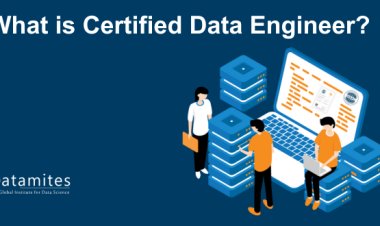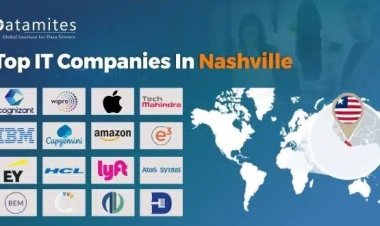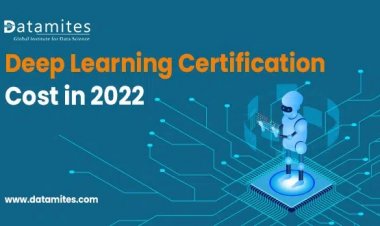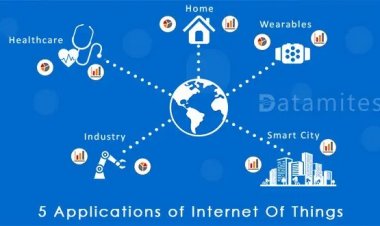Human Intelligence vs Artificial Intelligence: Key Differences and Insights
The debate between Human Intelligence (HI) and Artificial Intelligence (AI) continues to be a focal point in understanding how thinking, learning, and decision-making differ between humans and machines.
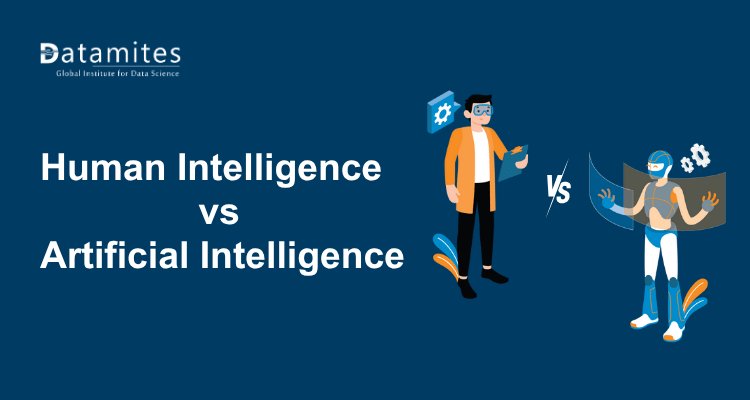
In the modern technological era, the debate over Human Intelligence (HI) and Artificial Intelligence (AI) is more relevant than ever. Human intelligence has driven innovation, culture, and civilization for centuries, while artificial intelligence is reshaping industries at lightning speed. Understanding their key differences, strengths, and synergies is essential for anyone looking to thrive in an AI-powered future.
Understanding Human Intelligence
Human intelligence is the natural cognitive ability that allows people to learn, think critically, solve problems, and adapt to changing environments. It is shaped by genetics, life experiences, emotional understanding, and creativity.
Core Traits of Human Intelligence
- Creativity and Originality – Humans can generate unique ideas beyond pre-defined patterns.
- Emotional Intelligence – The ability to perceive, understand, and respond to emotions effectively.
- Ethical Reasoning – Decisions based on morals, culture, and values.
- Adaptability – Rapid adjustment to unpredictable scenarios.
Unlike machines, humans possess the ability to think abstractly, reason ethically, and create artistic expressions that connect on a deeply personal level. With the rise of AI, 37% of business leaders plan to prioritize upskilling their workforce within the next two to three years.
Refer these below articles:
- What is Semantic Networks in Artificial Intelligence
- Agentic AI vs Generative AI: What’s the Difference?
- How Do Big Data and AI Work Together?
Understanding Artificial Intelligence
Artificial intelligence is the simulation of human intelligence in machines. AI systems can perform tasks that typically require human thinking, such as decision-making, pattern recognition, and natural language understanding.
Core Traits of Artificial Intelligence
- High-Speed Processing – Can analyze massive datasets within seconds.
- Accuracy and Precision – Reduces human error in repetitive or data-heavy tasks.
- Scalability – Handles millions of operations without fatigue.
- Data-Driven Learning – Improves accuracy with more data over time.
AI technologies such as machine learning, deep learning, and natural language processing are transforming industries like healthcare, finance, education, and transportation. According to Grand View Research, the global artificial intelligence market was valued at USD 279,220.1 million in 2024 and is projected to reach USD 1,811,747.3 million by 2030, growing at a remarkable CAGR of 35.9% between 2025 and 2030.
Key Differences Between Human and Artificial Intelligence
Human and Artificial Intelligence may share the goal of solving problems, but they operate in fundamentally different ways. Understanding these differences is essential to harnessing the strengths of both in today’s evolving world.
- Nature: Human intelligence is biological, evolving over millennia; AI is artificial, created through programming.
- Learning Process: Humans learn through experience and adapt over time; AI learns from data and algorithms.
- Creativity: Humans excel at imagination and originality; AI is limited to learned or programmed outputs.
- Emotional Capacity: Humans can feel, empathize, and understand emotions; AI lacks genuine emotional awareness.
- Processing Speed: Humans are slower with large data sets; AI processes massive amounts of data instantly.
- Ethics: Human ethics are shaped by morals and values; AI follows predefined ethical rules.
- Adaptability: Humans thrive in unstructured situations; AI performs best in structured environments.
Read these below articles:
Areas Where Humans Intelligence Outperform Artificial Intelligence
Despite AI’s rapid progress, there are domains where human intelligence remains unmatched:
Creativity and Imagination – Generating original ideas, artistic works, and innovative solutions. A study in Nature Human Behaviour found that while ChatGPT can generate ideas quickly, the ideas tend to be less diverse and novel than those produced by humans using their own thinking or browsing the web.
- Emotional Intelligence – Understanding, empathizing, and responding to human emotions. Research on “Hailey,” an AI-assisted tool, showed a 19.6% boost in empathy during peer-to-peer mental health support; and up to 38.9% for supporters finding empathy challenging, all while maintaining human efficacy.
- Ethical Reasoning – Making decisions guided by morals, values, and cultural context. As per Times of India, humans can align decisions with personal or cultural values, something AI inherently lacks by reflective practices like matching choices to top values.
- Adaptability – Adjusting effectively to unstructured, unpredictable, or unfamiliar situations. Humans excel when navigating unstructured or unpredictable environments—drawing on experience and instinct, not just data.
- Intuition – Drawing on instinct and experience to make judgments without complete data.
- Social and Cultural Understanding – Navigating nuanced social dynamics and cultural norms.
Areas Where Artificial Intelligence Outperforms Humans Intelligence
Artificial intelligence excels in several domains where human capabilities face limitations, including:
- Data Processing Speed – Analyzing vast datasets in seconds. A recent study tracked AI's ability to complete tasks compared to humans. It found AI models can reliably finish tasks taking humans under four minutes nearly 100% of the time. By 2032, this growth suggests AI could automate a month's worth of software development autonomously.
- Accuracy and Precision – Performing calculations and tasks with minimal errors. For instance, computer-vision systems observing robot-assisted prostate surgeries produced post-operative reports with significantly fewer discrepancies than surgeons did: 29% vs. 53%, respectively.
- Automation of Repetitive Tasks – Handling routine, time-consuming processes without fatigue.
- Pattern Recognition – Detecting trends, anomalies, and correlations in complex data. DeepMind’s AlphaGo and its successors demonstrate how AI can recognize patterns and strategies beyond human capability. AlphaGo defeated professional Go players, including a 5-0 sweep against European champion Fan Hui.
- 24/7 Availability – Operating continuously without breaks or downtime.
- Scalability – Managing large-scale operations and processes simultaneously.
Today, more than 1.7 million industrial robots are in operation worldwide, delivering high efficiency across industries.
The Synergy Between Human Intelligence and Artificial Intelligence
Rather than replacing humans, AI can augment human capabilities. For example:
- Healthcare – Doctors use AI to analyze medical images quickly, while human expertise ensures accurate diagnosis and compassionate patient care.
- Education – AI-driven learning platforms personalize study plans, while teachers provide mentorship, motivation, and emotional support.
- Business Decision-Making – AI processes market data and trends, while leaders apply strategic thinking and ethical considerations.
- Customer Service – AI chatbots handle routine queries instantly, while human agents resolve complex issues with empathy.
- Research & Development – AI accelerates data analysis, while human creativity drives innovation and breakthrough ideas.
- Transportation – AI powers navigation and automation, while human oversight ensures safety in unpredictable scenarios.
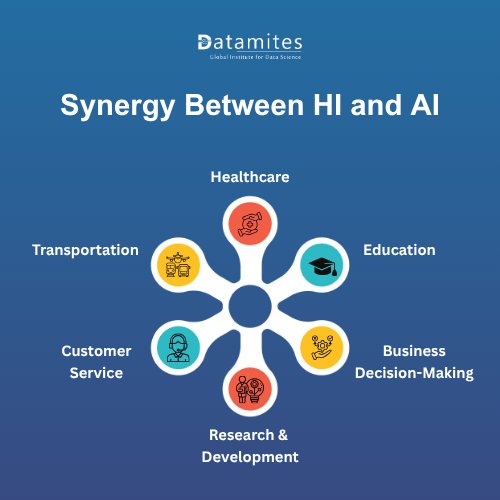
The discussion of Human Intelligence vs Artificial Intelligence is not about one replacing the other it’s about creating a harmonious balance. Human intelligence brings creativity, ethics, and emotional depth, while AI offers speed, precision, and scalability. As AI technologies advance, the most successful future will be one where humans and machines work together, leveraging each other’s strengths. Investing in AI skills and embracing this synergy will ensure a world where innovation and humanity thrive side by side.
Bangalore, often hailed as India’s technology capital, has integrated Artificial Intelligence into diverse industries, revolutionizing business operations and enhancing the way people engage with technology. Joining an artificial intelligence institute in bangalore empowers you with advanced, in-demand skills while placing you at the center of India’s AI revolution where opportunities are vast, and the potential for growth is unparalleled.
DataMites is a well-established training institute known for its comprehensive programs in Data Science, Artificial Intelligence, Machine Learning, and Python. With accreditations from respected organizations like IABAC and NASSCOM FutureSkills, DataMites stands out for its strong presence in major Indian cities, including Artificial Intelligence Institute in Chennai, Bangalore, Hyderabad, Pune, Ahmedabad, Coimbatore and Mumbai. The Courses combine theory with practical training, featuring capstone projects, internships, and placement assistance, including resume building and interview preparation.

